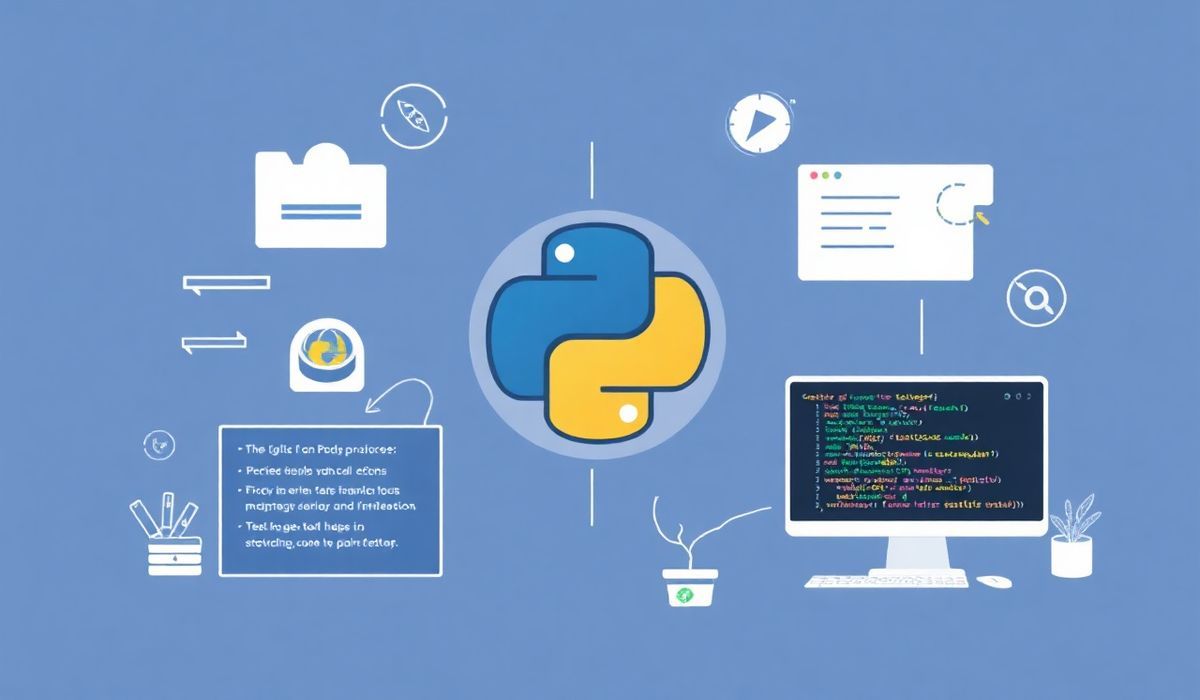Introduction to Simplejson
Simplejson is a popular library for JSON (JavaScript Object Notation) processing in Python. It is fast, compliant, and provides numerous APIs for serializing and deserializing JSON data. This guide will walk you through the most useful APIs provided by Simplejson with code snippets and an application example.
Common Simplejson APIs
1. Encoding (Serialization)
The simplejson.dumps() function is used to encode a Python object into a JSON string.
import simplejson as json
# Python dictionary
data = {"name": "John", "age": 30, "city": "New York"}
# Serialization
json_string = json.dumps(data)
print(json_string)
# Output: {"name": "John", "age": 30, "city": "New York"}
2. Decoding (Deserialization)
The simplejson.loads() function decodes a JSON string back into a Python object.
import simplejson as json
# JSON string
json_string = '{"name": "John", "age": 30, "city": "New York"}'
# Deserialization
data = json.loads(json_string)
print(data)
# Output: {'name': 'John', 'age': 30, 'city': 'New York'}
3. Reading JSON from a File
To read JSON data from a file, you can use the simplejson.load() function.
import simplejson as json
# Reading from a JSON file
with open('data.json', 'r') as file:
data = json.load(file)
print(data)
# Output: Contents of data.json
4. Writing JSON to a File
The simplejson.dump() function writes Python objects to a JSON file.
import simplejson as json
# Python dictionary
data = {"name": "John", "age": 30, "city": "New York"}
# Writing to a JSON file
with open('data.json', 'w') as file:
json.dump(data, file)
5. Pretty-Printing JSON
You can turn on pretty-printing for easier reading using the indent parameter in simplejson.dumps()
import simplejson as json
# Python dictionary
data = {"name": "John", "age": 30, "city": "New York"}
# Pretty-Printing
json_string = json.dumps(data, indent=4)
print(json_string)
# Output:
# {
# "name": "John",
# "age": 30,
# "city": "New York"
# }
6. Handling Non-Standard Types
The default parameter can be used to specify a custom method to handle non-standard types.
import simplejson as json
import datetime
# Custom serialization method
def custom_serializer(obj):
if isinstance(obj, datetime.datetime):
return obj.isoformat()
raise TypeError("Type not serializable")
# Python dictionary with datetime
data = {"name": "John", "joined": datetime.datetime.now()}
# Serialization with custom method
json_string = json.dumps(data, default=custom_serializer)
print(json_string)
Simplejson in Application
Here is a simple Flask application that uses Simplejson to manage JSON responses.
from flask import Flask, request, jsonify
import simplejson as json
app = Flask(__name__)
@app.route('/api/data', methods=['GET', 'POST'])
def handle_data():
if request.method == 'POST':
data = request.get_json()
return jsonify(data), 201
elif request.method == 'GET':
data = {"name": "John", "age": 30, "city": "New York"}
return json.dumps(data, indent=4)
if __name__ == '__main__':
app.run(debug=True)
This application provides an API endpoint to handle POST and GET requests. It uses Simplejson to encode and decode JSON data.
Hash: 805a3e0f962d8793263c59177db3716d3a48dc7ac8be1c42492caee8684ac0a8




